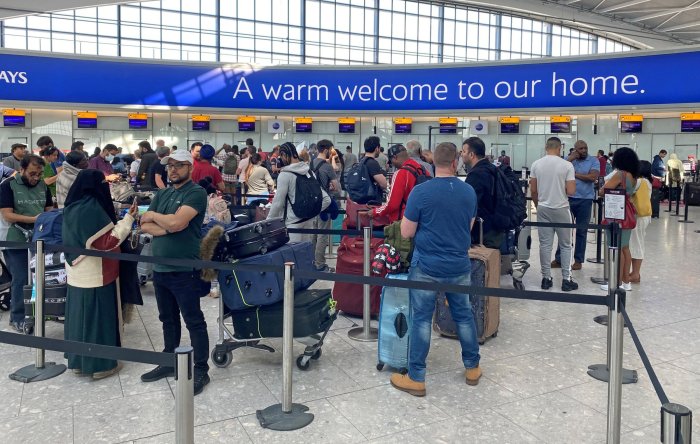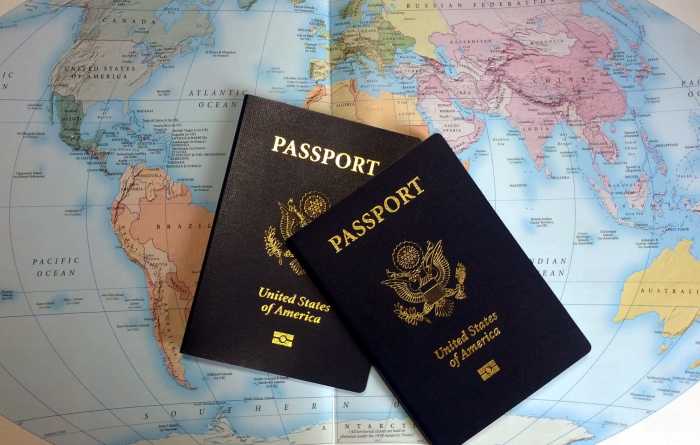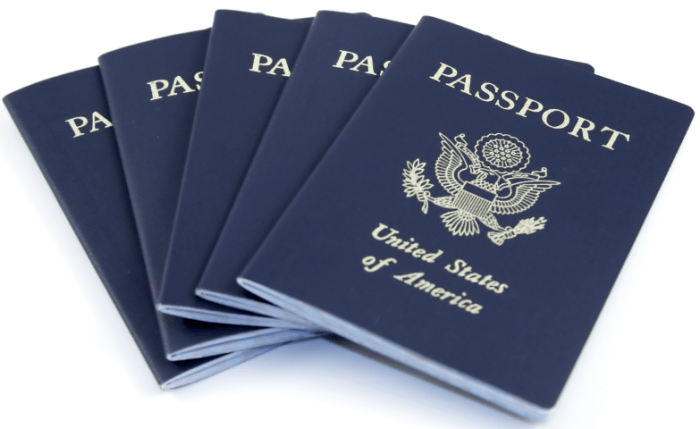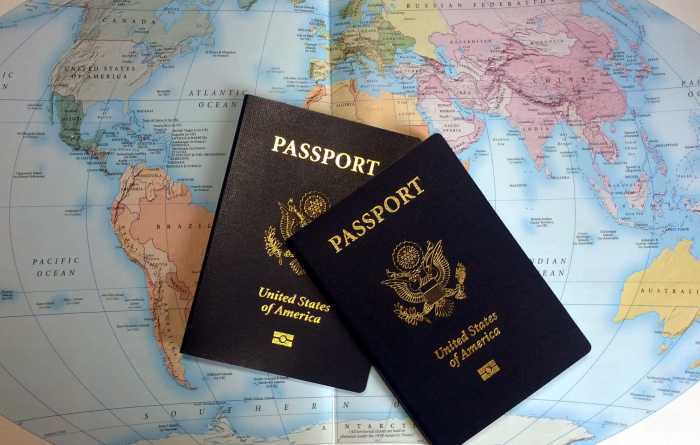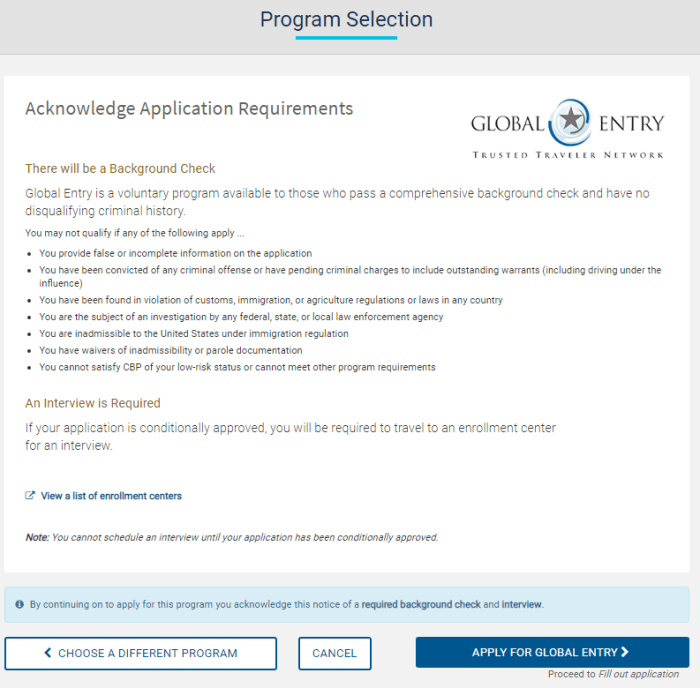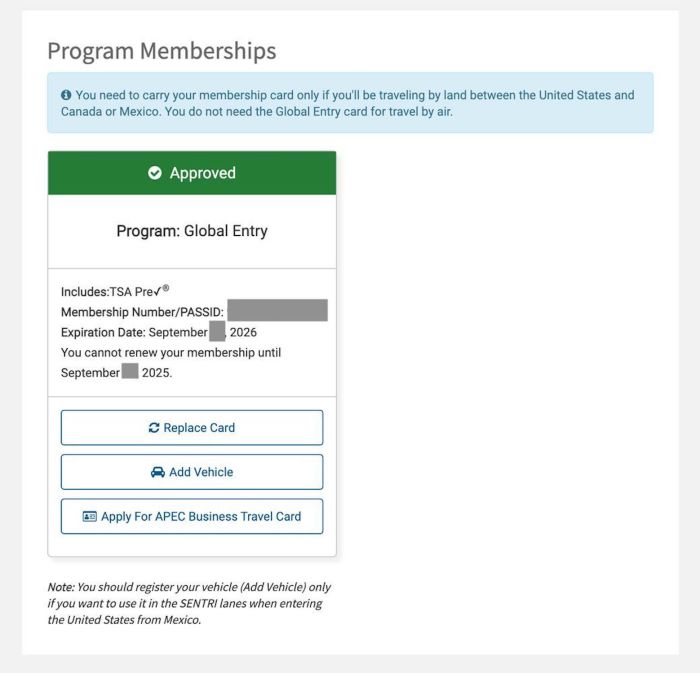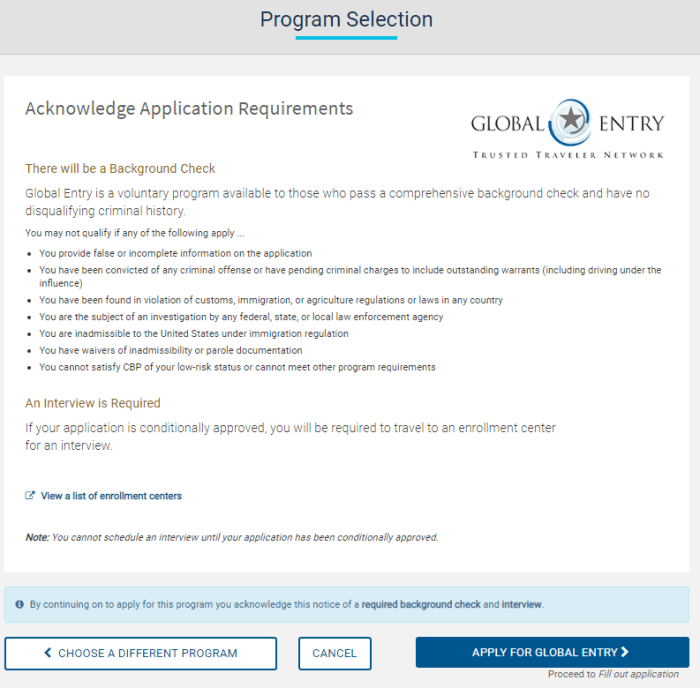When to renew your UK passport as wait times increase is a crucial question for any UK citizen planning travel. Passport renewal times have been steadily rising, impacting everything from personal travel plans to business commitments. Understanding the factors influencing these delays, and knowing when to apply, can save you significant stress and potential financial losses.
This guide delves into the intricacies of UK passport renewal timelines, examining the historical trends, the impact of increased wait times, and strategies for mitigating potential delays. We’ll also explore alternative solutions, the government’s response, and provide practical tips for a smooth application process.
Understanding Passport Renewal Timelines
UK passport renewals are a crucial aspect of travel, and understanding the current timelines is vital for planning. Fluctuations in wait times have become increasingly noticeable, and comprehending the factors behind these changes is essential. This detailed overview explores the historical trends, the key influences on processing, and the current landscape for UK passport renewal.The UK passport renewal process has been impacted by various factors over the years.
These fluctuations have often been linked to changes in application volume, processing capacity within the Home Office, and the ever-evolving demands of security procedures. Predicting exact wait times is difficult, but understanding these underlying factors allows for a more informed approach to planning travel.
Historical Overview of Wait Times
Historically, UK passport renewal times have varied. Before the recent surge in applications, wait times were generally more predictable. However, changes in government policies, shifts in the number of applicants, and the increasing importance of security measures have contributed to the observed fluctuations. These factors have created a more dynamic and less predictable environment for those seeking to renew their passports.
With UK passport renewal times stretching out, it’s crucial to plan ahead. Don’t get caught in a bureaucratic bottleneck! While you’re researching optimal renewal strategies, you might find yourself intrigued by the craft of fine spirits, like the unique flavors offered at some of Tennessee’s best moonshine distilleries. Best Tennessee moonshine distilleries are a fascinating exploration, but remember to prioritize your passport renewal.
So, start your research now to avoid last-minute stress and ensure a smooth journey.
Factors Influencing Wait Times
Several factors contribute to variations in passport renewal processing times. High application volumes overwhelm processing capacity, leading to longer wait times. The implementation of new security measures and technologies, including biometric checks and enhanced verification procedures, can also impact turnaround times. Furthermore, internal operational efficiency, staff availability, and any unforeseen disruptions or backlogs can all influence the time it takes to process a passport application.
Types of UK Passports and Renewal Timelines
UK passport applications are categorized into different types, each with varying processing timelines. These categories, which often reflect the type of travel involved, influence the processing times. The categories include standard, expedited, and emergency applications. The processing time for each type varies significantly, reflecting the urgency associated with each category. It’s crucial to understand the nuances of each category to accurately predict the renewal timeline.
Comparison of Current and Previous Wait Times
Comparing current wait times with those from previous years reveals a significant shift. While historical data offers a baseline for comparison, current wait times are often considerably longer than in previous years. The increase in application volumes and the evolving security procedures are key contributing factors to this change.
Average Processing Times for Different Passport Types, When to renew your uk passport as wait times increase
| Passport Type | Average Processing Time (Days) |
|---|---|
| Standard Renewal | 28-40 |
| Expedited Renewal | 10-14 |
| Emergency Renewal | 5-7 |
These are estimates and can vary based on individual circumstances and the current workload of the Home Office. These estimations should be treated as general guidelines, not guarantees.
Impact of Increased Wait Times: When To Renew Your Uk Passport As Wait Times Increase
Increased passport processing times in the UK are creating significant ripples across various sectors, from individual travel plans to international business operations. This extended wait period brings with it a multitude of consequences, impacting personal and professional lives alike. Understanding these repercussions is crucial for both citizens and organizations to adapt and mitigate potential losses.The lengthening wait times for UK passports are not merely an inconvenience; they represent a tangible disruption to daily life and established routines.
From cancelled trips to missed business opportunities, the consequences are substantial. This section delves into the diverse impacts of these prolonged processing times.
Potential Consequences for Individuals
Prolonged passport processing times can severely impact travel plans, particularly for those with upcoming international commitments. Missed deadlines for visas, flight bookings, and other travel arrangements are common occurrences. Individuals requiring urgent travel for medical emergencies, family matters, or other critical reasons face considerable challenges. The uncertainty and potential delays can be emotionally taxing and disruptive.
Impact on Travel Plans and International Commitments
Individuals with scheduled trips or international commitments are directly affected. Delayed passport issuance can lead to missed flights, cancelled bookings, and even the inability to participate in important events or meetings abroad. The financial implications of these disruptions are significant, potentially encompassing lost wages, accommodation fees, and travel costs.
Renewing your UK passport is a must, especially with those increasing wait times. Planning ahead is key, and considering the breathtaking landscapes of Alaska, with its earth, water, and sky, alaska earth water sky might just inspire you to book that trip sooner rather than later! Ultimately, though, the best time to renew your passport is well before you need it for travel, not just before you’re on the verge of a trip, so that you avoid potential delays.
Challenges for Urgent Travel
Individuals requiring passports for urgent travel face significant difficulties. The extended processing times can make it nearly impossible to obtain a passport in time for critical journeys. This situation is particularly challenging for those with medical emergencies, family crises, or other time-sensitive situations. Expedite passport services are often expensive and may not always be available.
Implications for Businesses and Organizations
Businesses and organizations relying on timely passport issuance for their employees’ international travel face significant challenges. Delayed passports can disrupt business operations, leading to missed deadlines, lost revenue, and potential reputational damage. This is particularly true for international companies or organizations with employees needing frequent travel. The cost of lost productivity and potential legal implications are also factors.
Financial Losses from Delayed Travel
The financial implications of passport delays can be substantial, particularly for businesses and individuals. A detailed breakdown of potential costs is presented below.
| Category | Impact | Estimated Cost |
|---|---|---|
| Flights and Accommodation | Cancelled or rescheduled flights, alternative accommodation, additional costs for changes. | £100-£1000+ |
| Business Travel | Missed meetings, lost sales, potential delays in project completion, and related costs. | £500-£10000+ |
| Personal Travel | Missed holidays, disrupted family events, and related expenses. | £100-£1000+ |
| Medical Emergencies | Delayed medical treatment, potential loss of life or health complications. | Difficult to estimate, but potentially enormous. |
The table above illustrates the potential financial losses associated with passport delays. These are not exhaustive and will vary depending on the specific circumstances and the nature of the travel. Furthermore, the intangible costs, such as stress and emotional distress, are often overlooked.
Strategies for Mitigating Delays
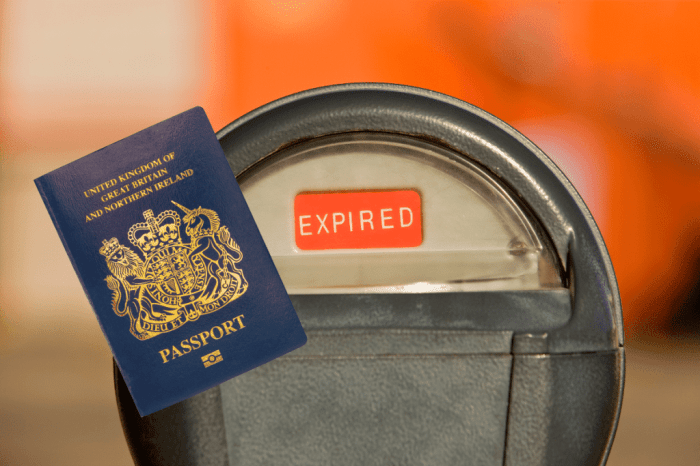
Navigating the increasingly lengthy passport renewal process in the UK can feel daunting. Knowing how to minimize delays and expedite the process can significantly reduce stress and ensure you have your passport when you need it. This section provides actionable strategies to help you get through this period of heightened wait times.
With UK passport renewal times stretching out, it’s crucial to plan ahead. Thinking about a fantastic road trip through Germany? Consider booking a scenic route through the Black Forest, or the winding roads of the Bavarian Alps. Best road trips in Germany offer stunning scenery, but don’t let a fantastic trip be hampered by a late passport renewal.
Act now to avoid any last-minute passport hassles and make sure you’re all set for your next adventure!
Planning Ahead for Passport Renewals
Proactive planning is crucial for managing potential delays. Understanding the current processing times and anticipating your travel needs are essential steps. Anticipating travel dates and scheduling your application well in advance allows for potential delays to be accommodated. Failing to plan could result in missing a trip or experiencing inconvenience.
When to Apply for Passport Renewal
Applying for a passport renewal well before your anticipated travel date is key. Consider a buffer period, allowing for potential delays in processing. For example, if your trip is scheduled for June, applying in January might be a prudent choice to avoid last-minute issues. By planning ahead, you’ll reduce the risk of your passport renewal being delayed, potentially jeopardizing your travel plans.
Checking Current Passport Processing Times
Staying informed about current passport processing times is essential. The UK government website is a reliable source for real-time updates. Regularly checking these updates allows you to adjust your application timeline accordingly. This information will help you make informed decisions about when to apply and potentially use expedited services.
Utilizing Expedited Services (If Available)
Some passport renewal services offer expedited processing options. However, these services usually come with an extra fee. Understanding the cost of expedited services is crucial before choosing this option. If your circumstances require a faster turnaround time and you’re willing to pay the additional cost, this could be a suitable choice.
Strategies for Minimizing Delays
- Apply well in advance: Scheduling your application significantly before your travel date is crucial to account for potential delays. A two-to-three month buffer is generally recommended.
- Check processing times regularly: The UK government website provides up-to-date processing times. Monitoring these times helps you understand the current situation and plan accordingly.
- Consider expedited services: If your circumstances require a faster turnaround time, investigate the option of expedited services and the associated costs. This might be necessary for urgent travel needs.
- Gather all necessary documents beforehand: Ensure you have all the required documents, such as previous passport, forms, and supporting evidence. This minimizes potential delays caused by missing paperwork.
- Be prepared for potential delays: Understand that delays are possible and factor them into your travel plans. Having a backup plan can help you mitigate potential disruptions to your trip.
Alternative Solutions and Options
Navigating the increasingly lengthy passport renewal process in the UK can feel frustrating. While official channels are essential, exploring alternative solutions and options can help you manage the wait times effectively. This section delves into these possibilities, including digital verification methods and different renewal routes.Understanding the potential downsides and advantages of each option is key to making an informed decision.
We’ll explore how to choose the best approach for your individual circumstances.
Digital Passport Verification Methods
Digital advancements have led to the development of secure methods for verifying passport information. This eliminates the need for physical documents in certain situations.Digital passport verification methods are becoming more prevalent. These systems use secure authentication protocols to verify passport details. This can be beneficial for travel agencies, businesses, or individuals needing quick passport verification. Some methods might include using digital copies of the passport and scanning, with verification against official databases.
This could streamline processes like visa applications, security checks, and travel arrangements.
Passport Renewal Options Comparison
Different options for passport renewal exist, each with its own set of advantages and disadvantages. This comparison will help you understand your choices.
- Standard postal application: This is the traditional method, often involving filling out forms, sending documents, and waiting for processing. While generally the most affordable option, it comes with the longest wait times. This method is often used for renewing a passport without any urgent travel plans.
- Courier service: For those needing a faster turnaround, courier services offer expedited delivery of documents. This often comes at an extra cost. Courier services are an option when speed is critical, such as for imminent travel.
- In-person application: Applying in person can provide quicker turnaround times in some cases. This option may be available in certain locations and could be beneficial for individuals requiring prompt processing.
Passport Renewal Online Application Process
Applying for passport renewal online can be a convenient alternative to traditional methods. This streamlined process can reduce the wait time.
- Visit the Gov.uk website: Start by accessing the official UK government website dedicated to passport applications.
- Create an account: Registering an account on the site allows for tracking your application’s progress and managing your details.
- Complete the online form: Carefully fill out the online application form, providing accurate and complete information.
- Upload required documents: Ensure you upload all necessary documents, such as your previous passport and proof of identity, correctly.
- Pay the fee: Pay the applicable passport renewal fee online using the provided methods.
- Submit the application: Once all information is verified, submit your application.
- Track your application: The website will allow you to track your application’s status at any time.
Passport Renewal Process Flow Chart
The following flow chart illustrates the steps involved in applying for a passport renewal:[Flow chart description – cannot be created here, as I do not have the capability to create images. A visual representation of the passport renewal process, starting from visiting the Gov.uk website to submitting the application and tracking the status, would be highly beneficial here. This flow chart should clearly depict each step and its corresponding action.]
Government Response and Initiatives
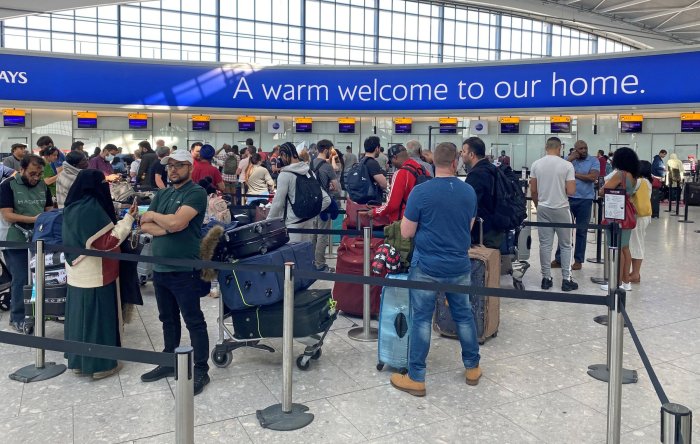
The increasing wait times for UK passport renewals have prompted a variety of responses from the government. Understanding these responses, and the associated initiatives, is crucial for citizens navigating the process and potentially mitigating delays. This section will Artikel the government’s approach to the issue, including recent policy changes and potential future solutions.The UK government recognizes the significant impact of prolonged passport processing times on citizens.
Their response involves a multifaceted approach, combining technological improvements, workforce adjustments, and strategic planning to address the backlog and improve service delivery.
Government Statements and Announcements
The Department for International Trade (DIT) and the Home Office have issued various statements regarding the passport renewal process. These statements often acknowledge the delays and Artikel measures being implemented to alleviate the situation. Public announcements frequently highlight the challenges faced by the UK Passport Office in managing the current volume of applications. These statements often emphasize the importance of patience and provide alternative options for travel documentation, such as using emergency travel documents.
Policy Changes and Initiatives
Several initiatives are underway to tackle the issue of passport processing delays. These efforts encompass strategic improvements in service delivery, including streamlining processes and increasing staff capacity. The government is actively exploring and implementing technological solutions to expedite applications and reduce processing times. This includes investing in new digital platforms and improving the efficiency of existing systems.
Potential Future Solutions
The government is likely to explore further technological enhancements to the passport application system. This might involve the implementation of automated processing tools, online appointment scheduling, and advanced data management systems. The government might also consider expanding the capacity of the UK Passport Office by recruiting additional staff and potentially decentralizing some services.
Summary of Government Initiatives
| Initiative | Description | Expected Outcome |
|---|---|---|
| Increased Staff Capacity | Recruiting additional passport processing staff to handle the increased workload. | Reduced processing times, improved turnaround for applications. |
| Technological Enhancements | Investing in new digital platforms, automation, and streamlined online application processes. | Faster application processing, reduced reliance on manual tasks, potentially lower error rates. |
| Process Streamlining | Improving the efficiency of existing passport application procedures and reducing bottlenecks. | Faster processing times, improved customer experience. |
| Decentralization (Potential) | Distributing some passport processing tasks to regional offices or agencies. | Potentially shorter travel distances for applications, reduced workload at central locations. |
Tips for Applying
Navigating the UK passport renewal process, especially with extended wait times, requires careful planning and meticulous attention to detail. Understanding the specific requirements and procedures will significantly reduce potential delays and ensure a smoother experience. This section provides a comprehensive guide to the application process, from gathering necessary documents to submitting your application.
Required Documents and Supporting Evidence
The UK Passport Office requires specific documentation to process your application. Failure to provide the correct documents can lead to delays or rejection. These documents confirm your identity and the validity of your application.
- Original passport:
- Proof of identity:
- Proof of address:
- Application form:
- Supporting documentation (if applicable):
A crucial document, the original passport must be submitted for comparison and verification. Note that a damaged or heavily altered passport might require extra verification steps.
Valid forms of ID include a current UK driving license, National Insurance number or passport. A recent utility bill or bank statement can also be used to prove your current address, but not alone.
This can be a utility bill, bank statement, or council tax bill, all with your name and address clearly displayed within the last three months.
The application form must be accurately completed with legible handwriting or typed text. Errors can lead to delays and possible rejection.
For cases involving name changes, marriage, or adoption, supplementary documentation might be needed, such as a marriage certificate or a court order.
Application Process and Procedures
The UK Passport Office has a structured process for passport renewals. Understanding these steps is crucial for a smooth application journey.
- Online application:
- Document upload:
- Payment:
- Application submission:
- Tracking your application:
The online application portal is the primary method for submitting renewal requests. Follow the online application instructions carefully to avoid errors.
Ensure all required documents are scanned and uploaded correctly to the online portal. Check file formats and sizes to avoid rejection.
Pay the required fees through the online portal using a secure payment method.
Once all the information is complete and the payment is processed, the application is submitted.
The online portal provides an application tracking number to monitor its progress.
Frequently Asked Questions (FAQs)
- What if I have lost my original passport?
- How long does the passport renewal process take?
- Can I apply for a passport if I’m currently overseas?
- What are the passport renewal fees?
In the case of lost documents, you must report it to the police immediately and obtain a police statement.
Renewal times vary depending on demand and processing; the official website should be checked for current estimations.
Yes, but the procedures might vary. You must consult the UK Passport Office’s guidance on overseas applications.
The fees are published on the UK Passport Office’s website.
Importance of Accurate Form Completion
Accurate form completion is paramount to avoid delays or rejection. Mistakes, however minor, can lead to unnecessary delays and frustration. Take your time, double-check your entries, and use legible handwriting or a clear, typed format.
Important Reminders: Review all instructions carefully before starting the application process. Double-check all personal details, dates, and addresses. Provide accurate and complete supporting documentation. Check the official UK Passport Office website for the most up-to-date information and any changes to procedures.
Conclusive Thoughts
In conclusion, renewing your UK passport amidst rising wait times requires careful planning and proactive measures. By understanding the factors influencing wait times, strategically planning your application, and exploring available options, you can minimize the impact of delays on your travel plans and commitments. This comprehensive guide provides a roadmap to navigate the complexities of passport renewals and ensure a timely and stress-free experience.
